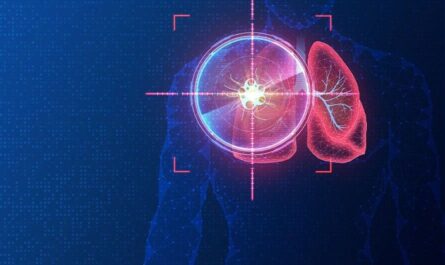A new study published in the journal Microorganisms has explored the composition of the microbiome in patients with biliary tract cancer, suggesting that the microbiome could hold the key to improving the diagnosis and treatment of this disease. Biliary tract cancer encompasses various invasive adenocarcinomas, including gallbladder carcinoma and cholangiocarcinoma, with the latter often associated with a poor prognosis.
The global prevalence of intrahepatic cholangiocarcinoma (ICC) has increased from 0.44 to 1.18 cases per 100,000 individuals in recent years. On the other hand, extrahepatic cholangiocarcinoma has seen a modest increase from 0.95 to 10.2 cases per 100,000 individuals over a 40-year period. Several risk factors have been identified, including hepatolithiasis, choledocholithiasis, primary sclerosing cholangitis, cholelithiasis, and bile duct cysts.
Thousands of microorganisms reside in various organs, including the stomach, skin, liver, and intestines, and these microorganisms influence various physiological functions, including immune regulation. Previous studies have suggested a relationship between the gastrointestinal microbiome and cancer and metabolic disorders. Next-generation sequencing technology has also revealed an association between the microbiome and biliary tract cancer.
Patients with biliary tract cancer exhibit increased levels of Enterobacteriaceae in their microbiome, as well as decreased levels of Faecalibacterium, Clostridia, and Coprococcus compared to healthy individuals. Fecal samples from biliary tract cancer patients have shown high levels of Enterobacteriaceae, with approximately 50% of the species identified in bile samples being similar to those found in fecal samples. Gut dysbiosis has been linked to the incidence of ICC, possibly due to the connection between gut microbiota, cytokine profiles, and bile acid. Patients with ICC exhibit significant differences in diversity compared to patients with liver cirrhosis hepatocellular carcinoma and healthy individuals.
Genomic studies have indicated the presence of certain bacteria within the biliary microflora, such as Streptococcus, Enterococcus, Bacteroides, Klebsiella, and Pyramidobacter, which play a significant role in the development of cholangiocarcinoma and could potentially serve as biomarkers for the disease. Extrahepatic cholangiocarcinoma has been associated with a reduced level of Nesterenkonia but an abundance of Methylophilaceae, Prevotella, Fusobacterium, Actinomyces, Helicobacter pylori, and Novosphingobium.
Chronic inflammation plays a critical role in the development of gallbladder cancer, which also affects the biliary tract. Bacterial infections increase the risk of gallbladder cancer by inducing chronic inflammation and the production of carcinogenic toxins and metabolites. Fusobacterium nucleatum, Escherichia coli, and Salmonella typhi have been identified in the bile of gallbladder cancer patients, potentially influencing the onset of the disease.
The gut microbiome has been shown to have a significant impact on the efficacy of immunotherapy in the treatment of malignant tumors. The response to immune checkpoint inhibitors (ICI) is influenced by the gut microbiome and environmental factors. Modulating the gut microbial composition and diversity through the targeted use of probiotics may enhance the response to immune checkpoint therapy (ICT) in cholangiocarcinoma patients. Additionally, taxonomic screening can identify biomarkers that predict the effectiveness of immunotherapies, and altering the gut microbiome may be an effective strategy for modulating responses to cancer immunotherapy.
The liver-bile acid-microbiota axis plays a crucial role in gastrointestinal carcinogenesis, and distinct changes in plasma bile acid concentrations could potentially be used as diagnostic biomarkers to differentiate cholangiocarcinoma from benign biliary diseases and healthy individuals. Further research into the microbiome’s role in the diagnosis and treatment of biliary tract cancer may unlock potential breakthroughs in improving patient outcomes.
*Note:
1. Source: Coherent Market Insights, Public sources, Desk research
2. We have leveraged AI tools to mine information and compile it




